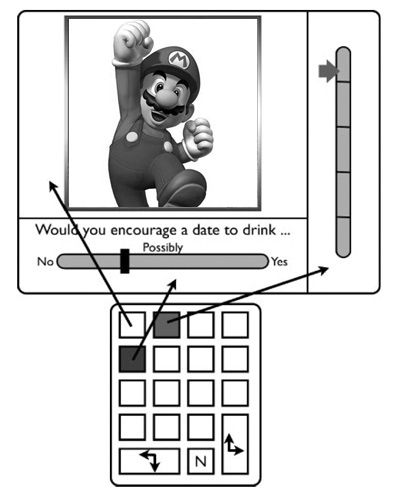Decision-Making
Just One More Level: Gaming While Aroused
How arousal (of varying types) can lead to playing "just one more level".
Posted May 14, 2013
As gamers, I think we've all been there: You're jamming along, feeling the rush as you shotgun foes in an online shooter or tear your car through the twists and turns of a realistically rendered race track. It's exciting and in the best cases it may actually get our heart racing and our palms sweating. And when the match is over or the latest "Level Complete" screen pops up, you remember all the other things that you really should be doing. Maybe you have school tomorrow and it's getting late. Or maybe your laundry is piling up and there are dishes in the sink. Hadn't you intended to limit yourself to just half an hour of gaming?
And yet, you decide on just one more match, one more level, or one more quest. Why? Why would you do that?
To find out the answer, let us consider pornography. I know, I know. Some of you are thinking "Wait, what?" and the rest of you are probably thinking "Already way ahead of you, dude." But bear with me.
In his book, Predictably Irrational, Dan Ariely discusses research he and George Lowenstein (2006) did on the effects of sexual arousal on decision making. Featuring one of the more interesting experimental designs I've seen, the researchers equipped male subjects with ...well, you know there's really no way to describe this without coming out and saying it: They gave a bunch of dudes laptops full of porn. Subjects watched said porn and at the zenith of their arousal, were asked some questions. You guys, THEY EVEN GOT PAID TEN BUCKS TO DO THIS!

With apologies to Ariely and Lowenstein...
Included were queries about how likely the subjects would be to engage in behaviors of questionable morality or judgment. Like, "Would you encourage your date to drink to increase the chance that she would have sex with you?" or "Would you always use a condom if you didn’t know the sexual history of a new sexual partner?"Upon comparing the responses to a control group (bet those guys were mad when they found out which straw they'd drawn) Ariely and Lowenstein found that yeah, acute arousal made you more likely to kick thoughts of consequences to the back seat and say you'd do some pretty stupid stuff. It's the same reason that Nancy's "Just say no" advice to teens simply doesn't work.
What does this have to do with staying up late playing games when you know you have to work tomorrow? The study above is kind of unique, but it stems from an entire body of research by psychologists who have shown that emotional arousal and excitement of many kinds can hamper rational decision making. Despite any intentions born of rational thought, you're just not thinking with the same brain after some infuriating punk has bested you in a shooter or you're just pulled off some thrilling act of derring-do in some other game. Rationality gets elbowed aside and you look up to realize that it's a quarter to three on a weekday morning. And yet you're still muttering "Okay, just one more match..."
Interestingly, marketers use this fact all the time to manipulate you. Let's say you've downloaded the demo for a game and just when a fevered battle is at its most heart poundingly intense, the demo pulls up short and says "That's it! End of demo! But you know what? You can totally buy the game RIGHT NOW!" The God of War III demo did very kind of thing by having Kratos go through an exhilarating ascent before leaping towards the Titan Perses in a fist pumping display of badassitute and then abruptly ending the demo. More than one pumped up player has probably formed an intention to buy the game right then, despite lacking funds or time to play the huge backlog of games they already bought. And this kind of thing is likely to be even more effective when the game is downloadable and you can purchase and play it immediately.
So how do you protect yourself from this kind of thing? Research shows that the most effective thing to do is not to put yourself in those situations to begin with. Barring that, simply being aware of the phenomenon can help.
REFERENCES
Ariely, D. & Lowenstein, G. (2006). In The Heat of the Moment: The Effect of Sexual Arousal on Sexual Decision Making. Journal of Behavioral Decision Making, 19 87-98.

Want to see more on the psychology of video games? Subscribe to this blog via RSS, visit me at Psychologyofgames.com and/or follow me on Twitter.


